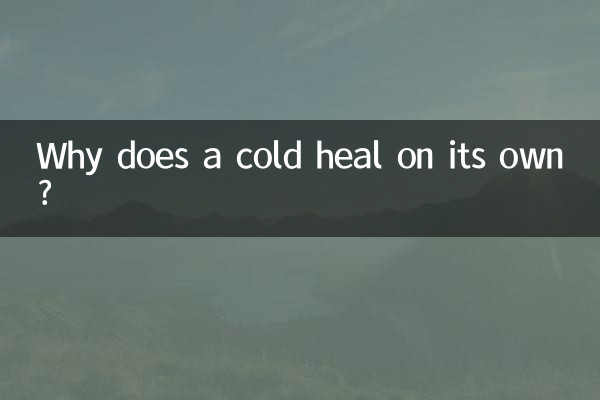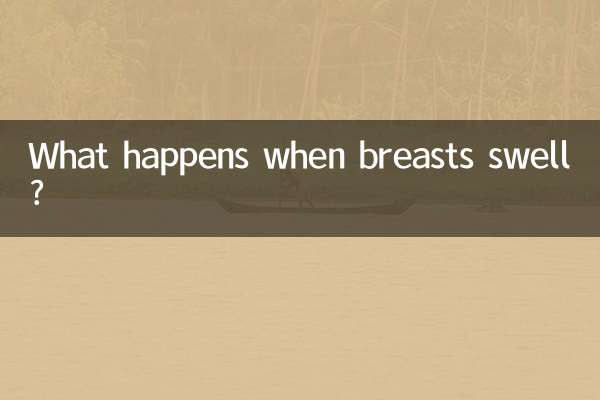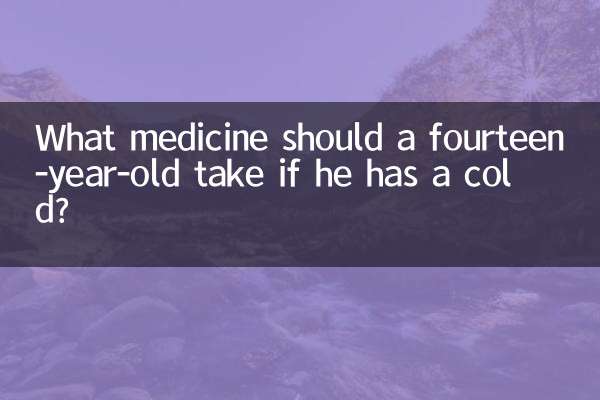Why does a cold heal on its own?
Cold is a common upper respiratory tract infection, mainly caused by viruses, such as rhinovirus, coronavirus, etc. Although a cold can be uncomfortable, most people will recover on their own within 7-10 days. So, why can colds heal on their own? This is closely related to the function of the human immune system. The following is a scientific explanation and structured data on self-healing from colds.
1. The mechanism of self-healing from colds

The self-healing process of a cold mainly relies on the body's immune system. When a virus invades the human body, the immune system will quickly activate a defense mechanism, including the following steps:
1.Identify viruses: Macrophages and dendritic cells in the immune system will recognize and phagocytose viruses, while releasing signaling molecules (such as cytokines) to activate other immune cells.
2.produce antibodies: B cells produce specific antibodies against the virus. These antibodies can neutralize the virus and prevent it from further infecting cells.
3.Remove viruses: T cells will directly attack virus-infected cells and clear the virus from the body.
4.repair tissue: After clearing the virus, the immune system will start a repair process to help the damaged respiratory mucosa recover.
2. Timeline for self-healing from colds
| time | symptom | immune response |
|---|---|---|
| Day 1-2 | Sore throat, sneezing | The virus invades and the immune system begins to recognize it |
| Day 3-5 | Nasal congestion, cough, fever | The immune system is fully activated and antibodies are produced |
| Day 6-7 | Symptoms reduced | Virus removed, repair begins |
| Day 8-10 | Symptoms disappear | Tissue repair completed |
3. Factors affecting self-healing of colds
Although colds usually resolve on their own, the following factors may affect recovery speed:
| factor | Influence |
|---|---|
| age | Children and the elderly recover more slowly |
| Immunity | People with low immunity take longer to recover |
| living habits | Lack of sleep and stress can delay recovery |
| complication | Bacterial infection may require additional treatment |
4. How to help a cold heal itself faster
Although colds are self-limiting, the following measures can help relieve symptoms and speed recovery:
1.Get more rest: Adequate sleep helps the immune system work efficiently.
2.drink more water: Staying hydrated can thin mucus and relieve nasal congestion and sore throat.
3.balanced diet: Consume foods rich in vitamin C and zinc, such as citrus fruits and nuts.
4.Avoid smoking and alcohol: These substances can irritate the respiratory tract and aggravate symptoms.
5. When Do You Need Medical Treatment?
Most colds can be cured on their own, but you should seek medical attention promptly if:
1. Symptoms persist for more than 10 days without improvement.
2. High fever (body temperature exceeding 38.5°C) or difficulty breathing.
3. Accompanied by severe headache, chest pain or rash.
In summary, self-healing from a cold is the result of the body’s immune system fighting against viruses. By understanding this process, we can better respond to colds and seek medical help when necessary.

check the details

check the details